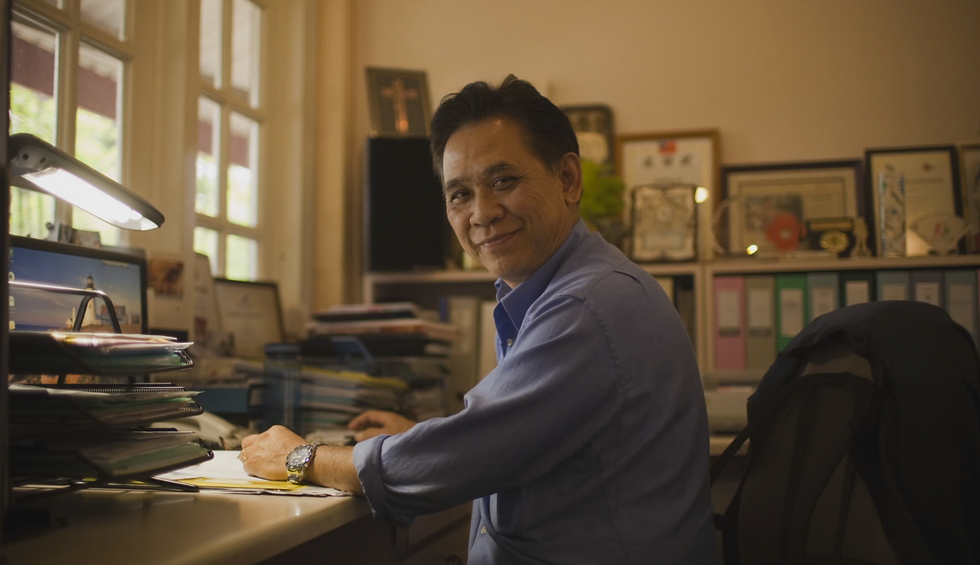Change is The Only Constant
- Ameera Fawzee

- Jan 16, 2016
- 4 min read
Over the years, Singapore has evolved from a small harbour to a metropolitan country. The efforts made, to alllow ex-offenders to reintegrate back themselves into society has developed along with the country.

Singapore saw a thriving 'hippie' scene in the 1970s and 80s. This was the time of rock and roll, and long manes, Charlie Angels and something else; Marijuana.
The hippie culture in Singapore during the 1970s saw youths aged 29 years old and below consuming "hard drugs" such as morphine and cannabis. Singapore was one of the most lucrative markets for these sought-after drugs, Mr Freddie Wee being one of those who searched.
More than 30 years ago, little Freddy Wee would run errands for uncles at his Kampong. He would buy tobacco and leaves from the nearby shop and watched as the uncles wrapped the leaves carefully around marijuana and tobacco.
,
Being a young, naive boy, he thought it was normal because it resembled a simple cigarette. When it was passed around, he took his first puff. He got hooked.
Mr Wee was under the influence of drugs such as marijuana and MX pill for six years before admitting himself to Alexandra Hospital. He was eventually caught by the Central Narcotics Bureau in 1977 despite admitting himself to be detoxified, a story you wouldn't hear today.
Today, Mr Wee, 62, is the deputy director of Breakthrough Missions, a Christian-based halfway house which provides a strict rehabilitation programme for drug abusers so that these abusers are able to reintegrate themselves back into society and not fall back into their addiction.
Drug addiction is a compulsive and out-of-control drug use whereby one person is heavily dependent on a legal or illegal medication. “You enjoy the feeling and it becomes a dependency”, Mr Wee said with a chuckle.
His chuckle fades into a frown when he emphasises the need to be cautious. “You think one table is ok but sometimes you can be hooked and it’s very difficult to give up that feeling,” he said.
Mr Wee believes that the government has the power to play an important role in creating a change in the treatment of drugs abusers. One initiative is how the sentence of a drug abuser is enhanced with services such as counselling. This is where other organizations come into the picture to work together with one goal in mind: to reintegrate ex-drug abusers back into society.
According to Mr Wong Kan Seng's the former Deputy Prime Minister and Minister for Home affairs, speech at Singapore Prison Service (SPS) Corporate Advance 2010, he said: "Halfway houses have the potential to play an even bigger role in catering to a wider range of inmates, beyond drug offenders. Prisons and Community Action For The Rehabilitation Of Ex-Offenders (SCORE) Network will continue to work closely to support the halfway houses through this transition. With these changes, we aim to see better equipped halfway houses and more inmates benefiting from the Scheme in the longer term."
Efforts of reintegration
The efforts to reintegrate these ex-offenders have improved tremendously. In 1995, a scheme was implemented to allow offenders to spend their last stage of detention there, The Prisons Halfway House Scheme. This scheme is closely monitored to ensure that offenders are able to recover fully. In October 2010, the Halfway House Service Model was launched to better meet the needs of offenders. Currently, there are eight halfway houses that are administering the scheme.
Breakthrough Missions was founded in July 1983 by a group of ex-drug offenders who found love in Christianity. It houses about 50 residents now. In Breakthrough Missions, they follow a strict programme whereby drug abusers will be assessed and interviewed before determining the duration of their stay, which is usually 6 months or 9 months.
There are instances however, when drug abusers come to Breakthrough Missions voluntarily to seek help. When this happens, they have to go through a detoxication clinic at the Insititute of Mental Health (IMH) before coming under the programme. After the detox, they will go under the programme for 18 months.
Mr Wee reinforces the importance of being strict. "We want to instil discipline because it is very important," Mr Wee said. Residents under this programme are not allowed to smoke, drink or get into fight. "If you don't have discipline, you will go back to square one."
Yellow Ribbon Project
In 2004, the Yellow Ribbon Project (YRP) was initiated to support ex-offenders in their reintegration back into society. It was organised by the CARE Network and their aim is to generate greater awareness of the need of second chances and inspire more Singaporeans to accept these ex-offenders into their lives.
There have been many events under YRP but the one that is the most prominent is the Yellow Prison Run which was launched in 2014. The run will take runners to pass through several historical sites in the Changi area and as the runners approach the finishing line, they will pass through the conserved Old Changi Prison Gatehouse before leading them into the new Changi Prison Complex. The run is a reflective of an ex-offender's path to reintegration. With the community's participation, ex-offenders can feel a sense of hope to "pick themselves up and to get back on the track".
Mr Wee remembers this one incident whereby a doctor attached to Breakthrough Missions made a conclusion that 'an addict is always an addict'. Mr Wee shook his head in disbelief. "We are the proven ones, we have a lot of recovering addicts."





コメント